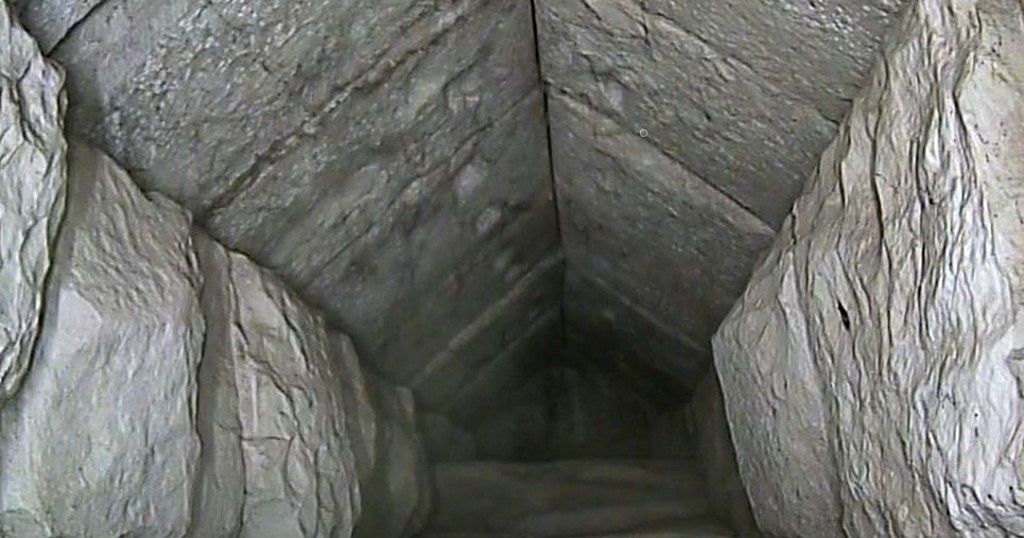Scientists discover hidden corridor in Egyptian pyramid

Scientists have discovered a hidden passage inside Egypt’s Great Pyramid, the authorities announced on Thursday, part of a seven-year international research project.
The passage is nine metres (30 feet) in length and more than two metres in width, the antiquities ministry said in a statement.
Egypt’s Tourism and Antiquities Minister Ahmed Issa told reporters at the ancient site in Giza also known as the Khufu, or Cheops, pyramid, that the “gabled corridor” with a triangular ceiling “was found on the northern face of the Great Pyramid of King Khufu”.
The discovery was part of the ScanPyramids project, launched in 2015 as a collaboration between major universities in France, Germany, Canada and Japan and a group of Egyptian experts.
Archaeologist Zahi Hawass, Egypt’s former antiquities minister, heads the committee supervising the project, which uses advanced technology to visualise hidden parts of the pyramid’s interior without having to excavate it.
The technology is a mix of infrared thermography, muon radiography imaging and 3D reconstruction — all of which the researchers say are non-invasive and non-destructive techniques.
The Great Pyramid is the largest in Giza, standing 146 metres tall, and the only surviving structure of the seven wonders of the ancient world.
Built some 4,500 years ago, it has three known chambers, and like other pyramids in Egypt was intended as a pharaoh’s tomb.
Hawass told reporters at the pyramid on Thursday that “there is a great possibility… the tunnel is protecting something. In my opinion, it is protecting the actual burial chamber of King Khufu.”
In 2017, ScanPyramids announced the discovery of a passenger plane-sized cavity, the first major structure found inside the Great Pyramid since the 19th century.
***AFP***
Source: Africanews















